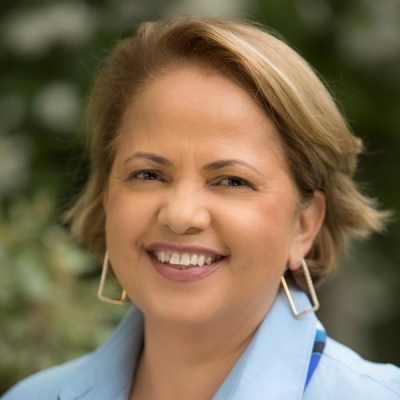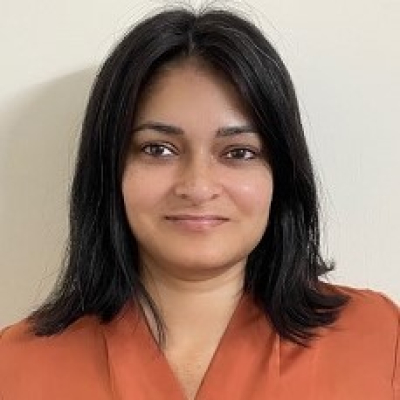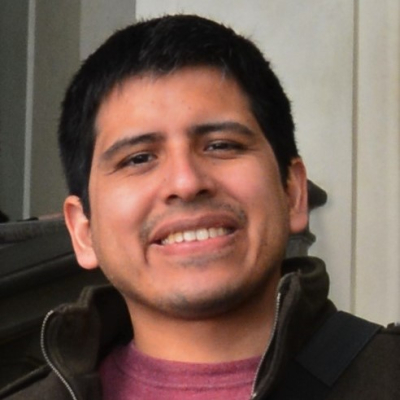- Session 1: Evidence synthesis in public health: what we have learnt
- Session 2: Evidence synthesis in public health: challenges and opportunities
- Session 3: Special Methods Support Unit web clinic: including different study designs and evidence
- NIHR Complex Reviews Support Unit webinar: evaluation of complex and multi-component interventions
- Guidance for systematic review authors on how to consider the individual and the population perspective
- Let's get social!
- Speaker details
Session 1: Evidence synthesis in public health: what we have learnt
This was a two-hour session on 12 October 2021 with a series of presentations and Q&A. Chaired by Joanne McKenzie and Carl Moons (Cochrane Methods Executive).
Click on the presentation titles below to watch the recordings.
|
Presentation 1: |
Presentation 2: |
|

|

|

|
|
Karla Soares-Weiser |
Eva Rehfuess |
Hugh Waddington |
|
Presentation 3: Download slides: [PDF] |
Presentation 4: Download slides: [PDF] |
Presentation 5:
|

|

|

|
|
Kate Flemming |
Ashrita Saran |
Carlos Canelo-Aybar |
|
Panel discussion and questions
|
||
Session 2: Evidence synthesis in public health: challenges and opportunities
This was a two-hour session on 18 October 2021 with a series of presentations and Q&A. Chaired by Jane Noyes and Sarah Nevitt (Cochrane Methods Executive).
Click on the presentation titles below to watch the recordings.
|
Presentation 1:
|
Presentation 2: Download slides: [PDF] |
|

|

|

|
|
Lisa Bero
|
James Thomas |
Elie Akl |
|
Presentation 3: Download slides: [PDF] |
|

|

|
|
Nancy Santesso |
Chairs and presenters |
Session 3: Special Methods Support Unit web clinic: including different study designs and evidence
This was a one-hour session repeated twice on 11 November 2021.
Cochrane's Methods Support Unit led a special web clinic focussing on the practicalities of implementation faced by staff and editors and how issues relating to complexity, non-randomised studies of interventions and synthesis without meta-analysis can be tackled in different topic areas. Recordings are available here.
NIHR Complex Reviews Support Unit webinar: evaluation of complex and multi component interventions
This was a three-hour session on 23 September 2021 with a series of presentations and Q&A.
In collaboration with the Cochrane Public Health and Health Systems Network, this three-hour NIHR Complex Review Support Unit (CRSU) webinar explored the complexity and challenges in addressing the multi component nature of public health interventions. Speakers included Olivia Wu (University of Glasgow and CRSU), Ellesha Smith (University of Leicester and CRSU), Paul Garner (Centre for Evidence Synthesis for Global Health, Cochrane Infectious Diseases), Deborah Caldwell (NICE Guidelines Technical Support Unit), Terry Quinn (Cochrane Dementia and Cognitive Improvement and CRSU), Jenni Burton (University of Glasgow), Alex Sutton (University of Leicester and CRSU) and Suzzanne Freeman (University of Leicester and CRSU). Read the full agenda and programme here.
Guidance for systematic review authors on how to consider the individual and the population perspective
This was a one-hour webinar on 30 September 2021 with a presentation and Q&A.
Jos Verbeek, University Medical Center Amsterdam, Netherlands, explained how the presentation of effect sizes from the individual or population perspective can influence judgments about the importance of these effects and prevention strategies. Watch the recording via Cochrane Training.
Let's get social!
Share that you're attending on Twitter or raise your questions on evidence synthesis in public health and complex interventions to our expert panel ahead of the event using #CochraneMethodsSymp.
Speaker details
Karla Soares-Weiser is the Editor-in-Chief of the Cochrane Library, one of the most reputable sources of best evidence worldwide. A board-certified clinician, she also has a doctorate in evidence-based health care and has been working in this field since 1997. She is the author of over 60 Systematic Reviews, including 33 Cochrane Reviews. She has held numerous positions in Cochrane Groups, including the Iberoamerican and UK Cochrane Centres, where she provided training in systematic review production. Outside Cochrane, Karla has held academic faculty positions in Brazil and Israel and established her own consultancy business providing evidence synthesis services to government agencies and not-for-profit organizations. As Editor-in-Chief, Karla is responsible for ensuring that the Cochrane Library meets its strategic goals of supporting health care decision-making by consistently publishing timely, high-priority, high-quality reviews and responding to the needs of its many users.
Eva Rehfuess is Professor and Chair of Public Health and Health Services Research at Ludwig-Maximilians University and at the Pettenkofer School of Public Health in Munich, Germany. Her main research interests are evidence-based public health and global health. Eva co-authored the intervention complexity chapter of the Cochrane Handbook for Systematic Reviews of Interventions and articles in the complex health interventions in complex systems: concepts and methods for evidence-informed health decisions article collection in BMJ Global Health. As well as Methods Editor with Cochrane Public Health, Eva coordinates the public health work as part of CEOsys (COVID-19 Evidence Ecosystem), a government-supported project led by Cochrane Germany to deliver “living” syntheses of evidence and living recommendations on COVID-19. Eva also co-leads the Collaboration for Evidence-Based Healthcare and Public Health in Africa.
Hugh Waddington is Assistant Professor at the London School of Hygiene and Tropical Medicine, UK. He specialises in policy research on topics like water, sanitation and hygiene, governance and agriculture using impact evaluations, systematic reviews and meta-analyses. Hugh is Co-Convenor of the Cochrane Non-Randomised Studies of Interventions Methods Group, was elected as Co-Chair of the Campbell Collaboration International Development Coordinating Group (2014-19) and is currently an editor with Campbell Systematic Reviews. His research focuses on quantitative methods of impact evaluation (randomised field trials, quasi-experiments, natural experiments and observational studies), critical appraisal of research (including risk of bias), systematic reviews, statistical meta-analysis, evidence mapping and theory-based mixed-methods approaches.
Kate Flemming is Professor in the Department of Health Sciences, University of York, UK, with a research programme that focuses on complex interventions including patient and carer experience of palliative care across different service models, disease types and morbidities, including motor neurone disease. Kate is a Co-Convenor of the Cochrane Qualitative and Implementation Methods Group, has worked with the WHO on the use of qualitative evidence synthesis to inform guideline development for complex interventions, and is co-author of the qualitative evidence chapter of the Cochrane Handbook for Systematic Reviews of Interventions and articles in the complex health interventions in complex systems: concepts and methods for evidence-informed health decisions article collection in BMJ Global Health.
Andrew Booth is a Reader in Evidence Based Information Practice and Director of Information at the School of Health and Related Research, University of Sheffield, UK, with research interests that focus on all methods of systematic review, evidence synthesis, evidence based practice, and knowledge translation. Andrew is a Co-Convenor of the Cochrane Qualitative and Implementation Methods Group, is working on two qualitative evidence syntheses to inform WHO guidelines, and is co-author of the qualitative evidence chapter of the Cochrane Handbook for Systematic Reviews of Interventions and articles in the complex health interventions in complex systems: concepts and methods for evidence-informed health decisions article collection in BMJ Global Health.
Ashrita Saran is Director of Campbell South Asia and leads a team dedicated to production and use of evidence synthesis to inform policy in low-and-middle-income country. Ashrita is an epidemiologist by background and is trained in systematic reviews and information science. She is a Co-Convenor of the Cochrane-Campbell Equity Methods Group, manages systematic reviews grants and conducts in-house evidence and gap maps and systematic review research. Her research areas of interest include education, child welfare and international development. Prior to joining Campbell, she worked with Cochrane South Asia and at the Public Health Foundation of India.
Carlos Canelo-Aybar is a Researcher with the Cochrane Iberoamerican Centre and Barcelona GRADE Center, based at Hospital de la Santa Creu i Sant Pau, Spain. He specializes in internal medicine, epidemiology, public health, and health economics. Prior to joining the Cochrane Iberoamerican Centre, Carlos worked in the National Institute of Health of Peru as a researcher in health technology assessment to inform policymakers and promote the use of evidence in public health. Currently, he participates as a methodologist in the development of clinical practice guidelines for a number of European organizations. Carlos is part of the Cochrane Trainer’s Network, and one of the lead researchers in developing the GRADE approach to assessing the certainty of modelled evidence in the context of health decision making.
Lisa Bero is Professor of Medicine and Public Health and Chief Scientist at the Center for Bioethics and Humanities, University of Colorado Anschutz Medical Campus, USA. Lisa provides international leadership for multidisciplinary teams that specialize in studying the integrity, use and implementation of research for health and health policy. She is Senior Editor, Research Integrity and Public Health and Health Systems Network, Cochrane. She has contributed to Cochrane as an author, editor, Centre Director, and member and Co-Chair of Cochrane’s Governing Board. She is also a long-time contributor to the work of the World Health Organization, including serving as a member of the Guideline Review Committee, and as Chair of the Essential Medicines Committee.
James Thomas is Director of the EPPI-Centre's Reviews Facility for the Department of Health, England, UK, which undertakes systematic reviews across a range of policy areas to support the department. He specialises in developing methods for research synthesis, in particular for qualitative and mixed methods reviews and in using emerging information technologies such as text mining in research. He is Co-Convenor of the Cochrane Qualitative and Implementation Methods Group, lead author of the intervention complexity chapter of the Cochrane Handbook of Systematic Reviews of Interventions and co-author of articles in the complex health interventions in complex systems: concepts and methods for evidence-informed health decisions article collection in BMJ Global Health.
Elie Akl is Professor of Medicine at the Department of Internal Medicine and the Department of Epidemiology and Population Health at the American University of Beirut, Lebanon. He leads the division of General Internal Medicine and Geriatrics (GIMG), directs the Clinical Research Institute (CRI) and the AUB GRADE Center, and co-directs the Center for systematic reviews of health policy and systems research (SPARK). Elie is a member of the GRADE working group and of the GRADE Guidance Group, and serves as a guideline methodologist for a number of medical professional organizations and the World Health Organization.
Nancy Santesso is Assistant Professor in the Department of Health Research Methods, Evidence and Impact at McMaster University, Canada, and a Registered Dietitian. She is the Deputy Director of Cochrane Canada, editor of the Cochrane Consumers and Communication Review Group, and member of Cochrane GRADEing Methods Group. Nancy provides training in systematic reviews and guideline development to use evidence from systematic reviews. Her research interests include systematic review methods, guideline development methods and communicating evidence to the public and patients.
If you have any questions about the Cochrane Methods Symposium contact us at support@cochrane.org
Are you interested in joining a Cochrane Methods Group? More info on how to join is available here
